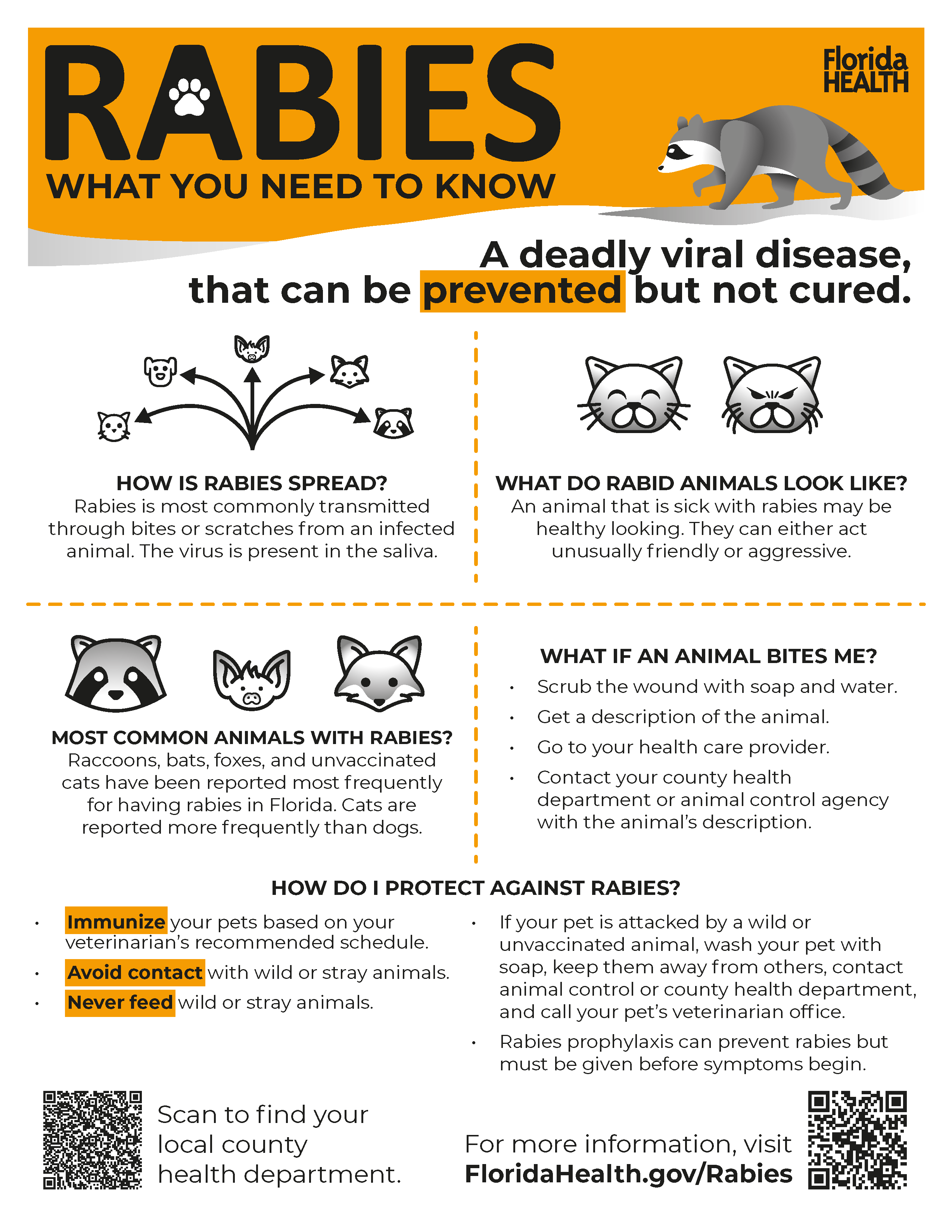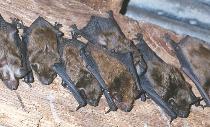Rabies Surveillance
Florida Department of Health in St. Johns County
- 904-506-6081
- StJohnsFeedback@FLhealth.gov
-
Fax
904-825-6875 -
Mailing Address
200 San Sebastian View
St. Augustine, FL 32084
Helpful Links:
St. Johns County
Animal Control
For further information on Rabies in Florida, visit the Florida Department of Health — Rabies website.
The Florida Department of Health in St. Johns County (DOH — St. Johns) works in cooperation with St. Johns County Animal Control to evaluate cases of animal bites for the purpose of ruling out rabies concern to the individual and community.
About Rabies
The rabies virus is present in some wildlife in Florida and can spread to unvaccinated pets, which then pose a high risk to the pet owner and their family. The disease is rare in humans but poses a serious public health threat, because of its high fatility rate.
The main wildlife sources of rabies in Florida are raccoons and bats. Infected raccoons and bats can expose people, pets, livestock, and other wildlife to rabies, typically through bites. Outside cats are by far the most common domestic animal found to have rabies in Florida. Dogs, cats, and ferrets are required by law to be vaccinated against rabies in the state of Florida.
If you believe you may have been exposed to rabies, contact your health care provider and your county health department right away. If an exposure occurred, there is effective treatment that can prevent infections in people if administered in a timely manner.
Rabies Prevention
- Avoid direct human and domestic animal contact with wild animals.
- Have your pets and at-risk livestock vaccinated and keep those vaccinations up to date.
- Do not allow your pets to roam unsupervised. Keep pets and livestock secured on your property.
- Never feed wild or stray animals, avoid attracting them with outdoor food sources. Always feed your pets indoors.
- If your animal is attacked by a wild, stray or unvaccinated animal, DO NOT examine your pet for injuries without wearing gloves.
- Wash your pet with soap and water to remove saliva from the attacking animal.
- DO NOT let your animal come into contact with other animals or people until the situation can be handled by animal control or county health department staff.
- Provide pre-exposure prophylaxis for people in high-risk professions, such as animal control and veterinary personnel, laboratory workers, and those working with wildlife.
- Repair any areas of your home that would allows bats to nest.
Rabies Flyer
Rabies in Bats
Information about bats in Florida
More Information
Visit the Florida Department of Health - Rabies to learn about:
- Animal Contact and Human Health
- Dog Bite Prevention
- Rabies Surveillance Data
- Information for Rabies Professionals
- National B Virus Resource Center
- Racoons and Pools
- Baylisascaris
- Recommendations for Prevention of and Therapy for Exposure to B Virus
- Herpes B Information for Providers
If you have any rabies questions or concerns, contact DOH-St. Johns County Health Department’s service center for Disease Control and Health Protection.






Connect with DOH